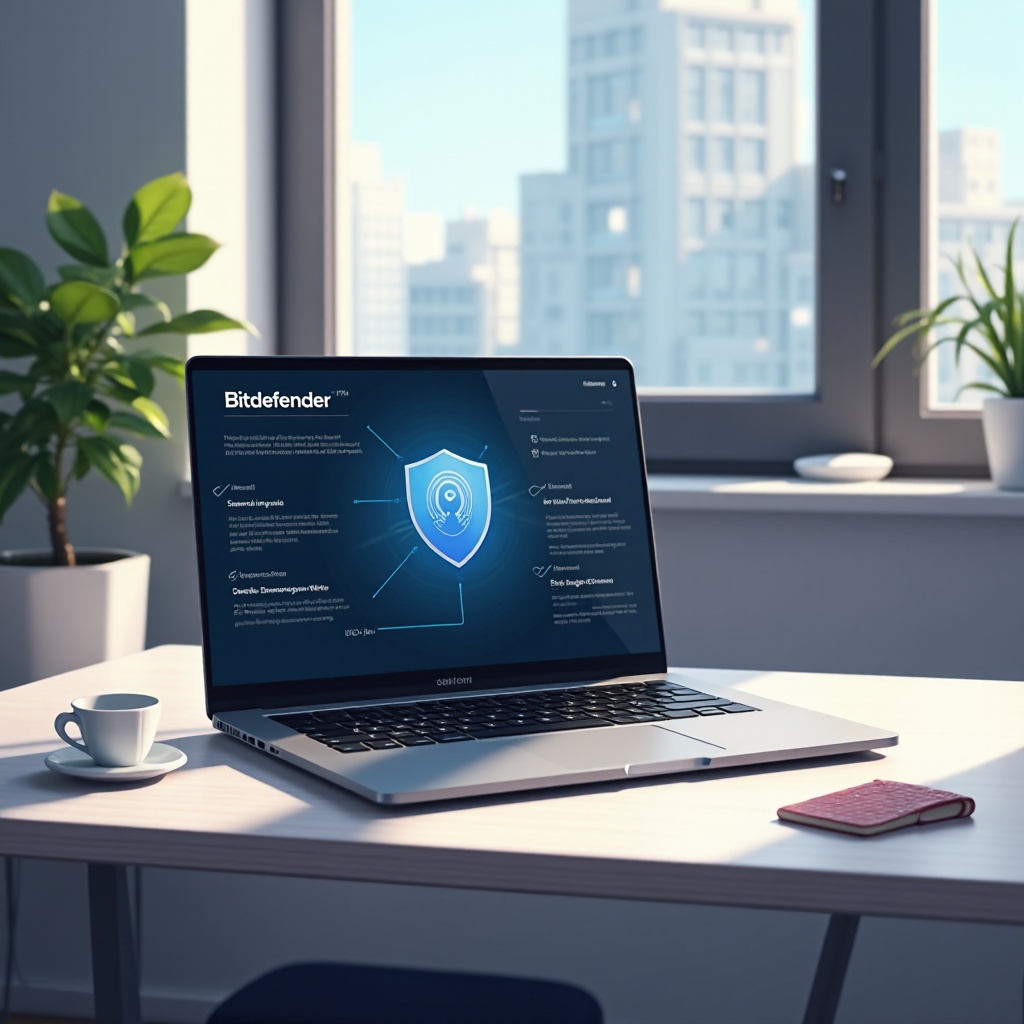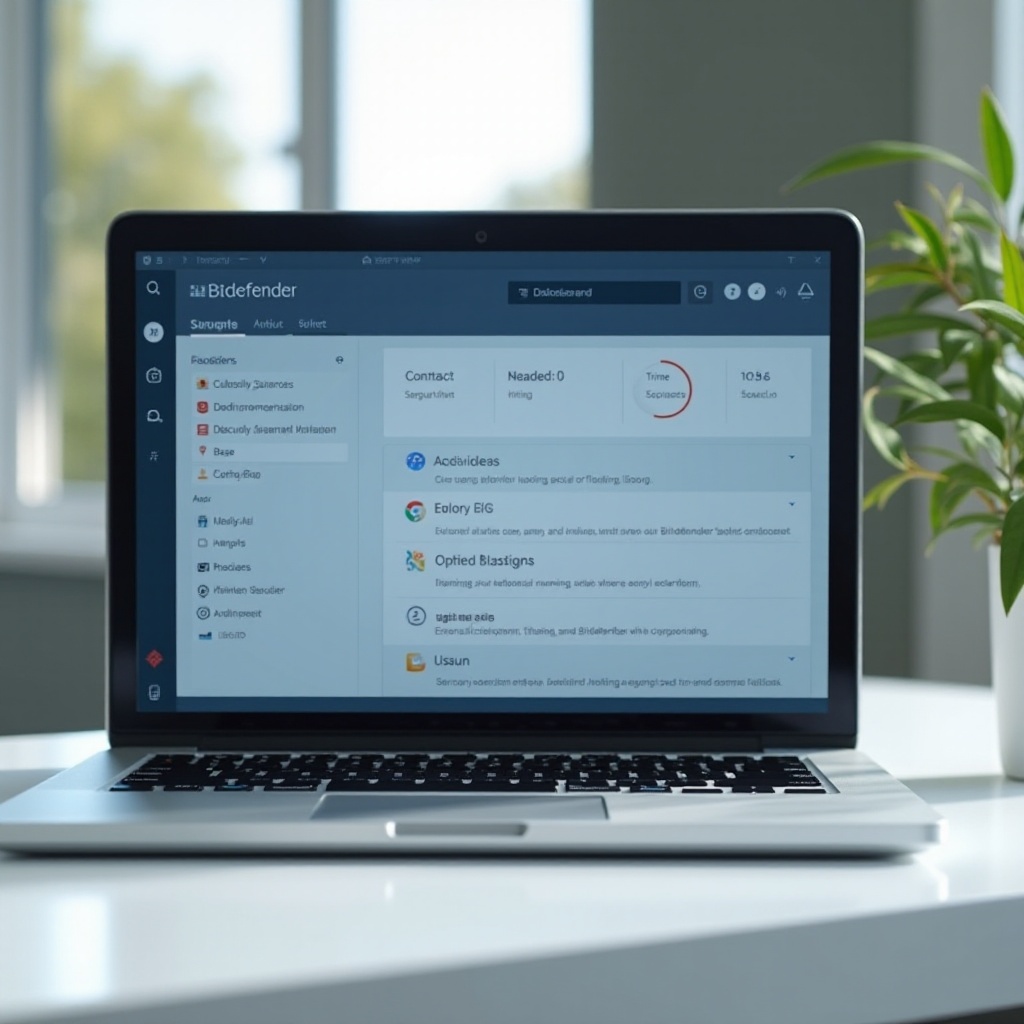Introduction
Securing your Linux laptop is essential to protect your data and ensure smooth operations. While Linux is known for its robust security features, incorporating a reliable antivirus such as Bitdefender can further enhance your protection. This guide will take you through understanding Linux’s security needs, the benefits of choosing Bitdefender, and steps for its installation and utilization. Let’s delve into securing your Linux laptop more effectively with Bitdefender.

Understanding the Security Landscape for Linux
Linux systems are generally considered more secure compared to other operating systems, mainly because of their low market share and open-source nature. However, they are not invulnerable. Cyber threats such as malware, phishing attacks, and vulnerabilities in software applications still persist. Understanding these risks is crucial for safeguarding your laptop.
Linux’s inherent security features, such as user privilege separation and a multi-layered protection architecture, provide a good foundation. Yet, proactive measures like using an antivirus can offer an added layer of defense. This is where Bitdefender comes into play, ensuring comprehensive protection against evolving threats.

Why Choose Bitdefender for Linux?
Bitdefender stands out in the antivirus market due to its advanced security features and user-friendly approach. Here are some key reasons why you should consider Bitdefender for your Linux laptop:
- Advanced Threat Detection: Bitdefender integrates cutting-edge technology to detect and neutralize a wide range of threats, including emerging ones.
- Minimal Impact on Performance: Unlike some security solutions that can slow down your system, Bitdefender optimizes resource usage to ensure minimal impact on performance.
- Ease of Use: The user interface is designed to be intuitive, making it easy for users of all technical abilities to navigate and utilize.
- Comprehensive Coverage: From real-time protection to web security, Bitdefender offers a suite of features that cover multiple security aspects.
Choosing Bitdefender means you’re leveraging one of the most reputable names in cybersecurity to protect your Linux system against a multitude of threats.
Installation and Setup Guide for Bitdefender on Linux
Setting up Bitdefender on your Linux laptop is a straightforward process. Follow these steps to enhance your laptop’s security:
- Download the Installer: Visit the official Bitdefender website and download the appropriate version for your Linux distribution.
- Install Dependencies: Depending on your distribution, you might need to install certain dependencies. Use your package manager to install these prerequisites.
- Run the Installer: Navigate to the downloaded file and run the installer. Usually, this can be done via terminal commands or a graphical installer provided.
- Enter License Key: Follow the on-screen prompts to enter your license key. This activates your Bitdefender subscription.
- Complete Setup: After installation, complete the initial setup by selecting your preferred security settings.
Upon completion, Bitdefender will start protecting your system automatically. Ensure it’s configured properly to get the maximum security benefit.
Exploring Bitdefender’s Features
Bitdefender offers a wide range of features aimed at keeping your Linux laptop secure. Here’s an overview of the key functionalities:
Real-time Protection
Bitdefender’s real-time protection continuously monitors your system for threats. This includes scanning files upon access and analyzing system behavior to detect malicious activity. Real-time protection is your first line of defense, ensuring immediate action against any detected threats.
Web Protection and Anti-phishing
The web protection feature safeguards you while browsing online. It blocks malicious websites, prevents phishing attempts, and warns you about fraudulent sites. This is particularly important as browsing is a common vector for malware infections and cyber-attacks.
Customizable Security Settings
Bitdefender allows you to customize security settings tailored to your needs. You can adjust the severity and frequency of scans, set specific directories or files for exclusion, and configure different security profiles based on your activity to optimize both protection and performance.
With these features, Bitdefender not only protects against immediate threats but also enhances your overall security posture.

Best Practices for Maintaining Security
While installing Bitdefender significantly boosts your security, adopting some best practices can further ensure your Linux laptop’s safety:
- Regular Updates: Always keep your system and Bitdefender updated to protect against the latest threats.
- Regular Scans: Schedule regular scans to ensure that any potential threats are detected and neutralized early.
- Strong Passwords: Use strong, unique passwords for all accounts and consider a password manager for better management.
- Firewall Settings: Configure your firewall settings to restrict unauthorized access to your network.
- Backup Data: Regularly back up important data to recover files in case of an attack.
Following these best practices, in addition to Bitdefender’s protection, will help you maintain a secure Linux environment.
Troubleshooting Common Issues with Bitdefender on Linux
Even the best software can encounter issues. Here are some common problems you might face with Bitdefender on Linux and how to address them:
- Installation Errors: Ensure all dependencies are installed and the installer is compatible with your distribution version.
- Performance Issues: While rare, if you experience slow performance, check the scan settings and reduce the frequency or scope.
- Update Failures: Verify your internet connection and ensure that your subscription is active. Reinstall or repair the installation if necessary.
By troubleshooting these common problems, you can ensure that Bitdefender runs smoothly on your Linux laptop.
Conclusion
Securing your Linux laptop using Bitdefender provides robust protection against a wide array of cyber threats. From installation to customization and best practices, this guide has covered all the essential steps to keep your system safe. By integrating Bitdefender, you leverage comprehensive security features that enhance your Linux laptop’s security posture.
Frequently Asked Questions
Is Bitdefender necessary for Linux laptops?
While Linux is generally secure, adding Bitdefender provides an extra layer of defense against new and evolving threats.
Does Bitdefender slow down Linux performance?
No, Bitdefender is optimized to have minimal impact on system performance, ensuring your laptop runs smoothly.
How often should I update Bitdefender on my Linux laptop?
You should update Bitdefender regularly to ensure you have the latest protection against emerging threats. Weekly updates are recommended, or enable automatic updates for convenience.